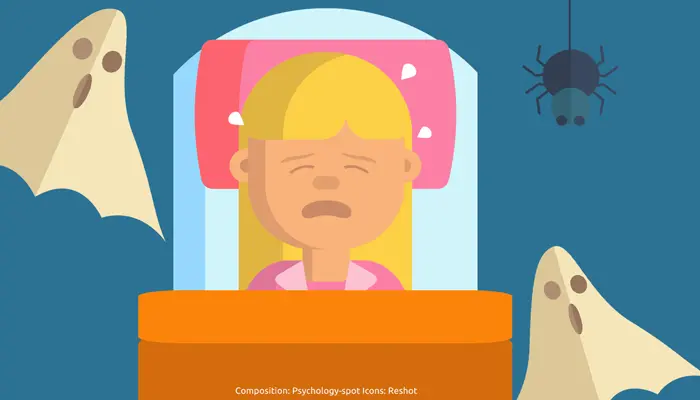
We have all had nightmares, those dreams that awaken us with a runaway heart and the memory of the fear still latent. However, a recurring nightmare could be more than just a bad dream. When the nightmare is repeated over and over again, in a loop, it could be a sign that something is not right in our lives.
In fact, psychologists from the University of Turku, in Finland, discovered that there is a relationship between dreams and the risk of suicide. These researchers analyzed the dreams of 71,068 people and found that recurrent nightmares were a predictor of suicide. Why? The answer comes from the hand of another more recent investigation.
Tell me what your nightmares are and I will tell you how unsatisfied you feel in your life
Psychologists at the University of Cardiff believe that a recurring nightmare is not only a form of the unconscious to represent emotions and experiences that we have not processed during the day, but also an expression of frustrations and very specific difficulties in life.
These researchers questioned whether the lack of satisfaction of three basic psychological needs: autonomy, competence and the ability to relate to the others, can cause a recurrent nightmare and what is their basic mechanism.
Therefore, they recruited 200 people, who completed a questionnaire about frustrations and dissatisfaction with various aspects of their daily lives. They were also asked to tell their most recurrent dream.
The results showed a clear correlation between the unmet psychological needs in daily life and the appearance of recurrent nightmares, in which people experienced a series of negative emotions ranging from sadness and fear to anger.
Nightmares are an attempt to make sense of daytime experiences
Nightmares may be the psyche’s attempt to give a sense to the challenging experiences we live during the day. However, a recurring nightmare goes a step further, it occur when basic psychological needs are not met.
These psychologists discovered that a recurrent nightmare is usually a manifestation of:
1. Profound dissatisfaction with the turn our life has taken
2. Sensation of lack of control over our decisions
3. Problems in the closest interpersonal relationships
4. Sensation of incapacity to deal with daily challenges
These researchers also discovered that as frustration increases, recurrent nightmares usually deal with three issues: falling, making mistakes and being attacked.
They also proved that aren’t nightmares what affect our day, but the quality of daytime experiences that affect the quality of our dream and its content. Nightmares were more common when during the day the person experienced dissatisfaction, loneliness, frustration, a sense of incapacity and negative emotions that disturbed his serenity.
How can we get rid of a recurring nightmare?
Practicing the Jacobson relaxation technique when you go to bed can help you have calmer dreams. It has been proven that also aromatherapy helps you fall asleep and sleep better.
However, if you’re having recurring nightmares, you’d better analyze your day-to-day and find the source of dissatisfaction. By eliminating it, also nightmares are likely to disappear.
Sources:
Campbell, R. & Vansteenkiste, M. (2018) Linking psychological need experiences to daily and recurring dreams. Motivation and Emotion; 42(1): 50-63.
Sandman, N. et. Al. (2017) Nightmares as predictors of suicide: an extension study including war veterans. Scientific Reports; 7: 44756.



